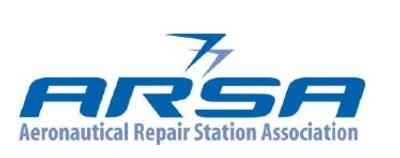Sat, Feb 07, 2015
Says 'Or New' Unacceptable Language Not Included In NPRM
On Jan. 29, the Aeronautical Repair Station Association (ARSA) asked the FAA to clarify when the new owner of a repair station can apply for an amended versus a new certificate.

The change to the repair station rule, which became effective Nov.10, 2014, revised Title 14 Code of Federal Regulations (CFR) section 145.57(b). That section states the new owner of repair station assets “…must apply for an amended or new certificate in accordance with § 145.51.”
The addition of the words “or new” was not even mentioned in the notice of proposed rulemaking, but the FAA reasoning is that “[t]he revision clarifies that a new owner will need to apply for a new certificate only if the new owner chooses to operate as a repair station.”
The unnecessary change has resulted in confusion, rather than clarity. While ARSA recognizes that a repair station certificate cannot be transferred, amending one takes fewer resources for both industry and agency. Considering the current waiting time for a new certificate can be up to two-years, any uncertainty regarding the application is unacceptable.
“It should be very clear by now how much trouble can be caused by a misplaced or unnecessary word in the regulations,” said Sarah MacLeod, ARSA’s executive director. “I say that because ARSA has been making exactly that point for months: Since the new repair station rule was announced last year this association has been working to scrap every one of these ‘broken parts,’ since they offer no safety benefit to the flying public and represent immeasurable administrative burden for repair stations.”
Along with its letter, ARSA submitted suggested changes to guidance material. The association asked the agency make clear an application for a new certificate is only required where the new owner opts for a new certificate number. And even then, the processing interval should depend upon the changes the new owner makes to the location, housing, facilities, equipment and personnel.
More News
Its Offerings Are Lighter, Cleaner, and Now Pushing Past 1,000nm on SAF Jet Fuel DeltaHawk’s diesel-powered aircraft lineup has seen incredible upgrades over the last few yea>[...]
The Airplane Experienced A Total Loss Of Engine Power On December 3, 2025, about 1600 central standard time, a Mooney Aircraft Corp. M20K, N57229, was substantially damaged when it>[...]
Make Sure You NEVER Miss A New Story From Aero-News Network Do you ever feel like you never see posts from a certain person or page on Facebook or Instagram? Here’s how you c>[...]
Aero Linx: European Society of Aerospace Medicine (ESAM) As a pan-European, independent forum, it works to promote the safety and health of all persons involved in aviation and spa>[...]
“We are excited to see Wisk achieve this milestone, and I’m so proud of the team that made it possible. The team at Wisk has built advanced technologies across flight c>[...]
 Aero-TV: DeltaHawks Diesel Power Steps Into the Spotlight
Aero-TV: DeltaHawks Diesel Power Steps Into the Spotlight NTSB Prelim: Mooney Aircraft Corp. M20K
NTSB Prelim: Mooney Aircraft Corp. M20K ANN FAQ: Turn On Post Notifications
ANN FAQ: Turn On Post Notifications ANN's Daily Aero-Linx (12.20.25)
ANN's Daily Aero-Linx (12.20.25) Aero-News: Quote of the Day (12.20.25)
Aero-News: Quote of the Day (12.20.25)



